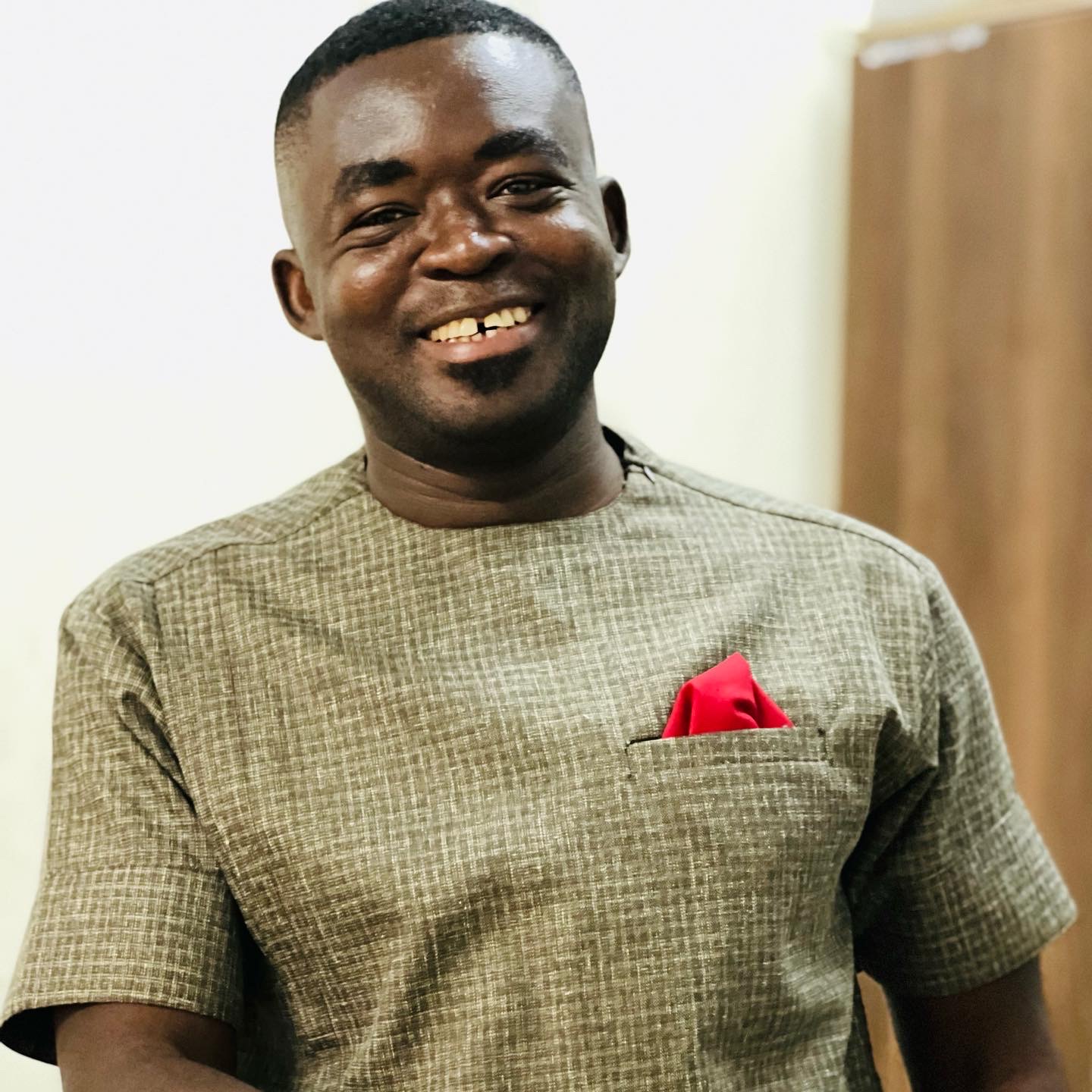DOWN MEMORY LANE: THE CASE OF JUNE 4TH REVOLUTION.
On May 15, 1979, while Ghana was preparing for elections scheduled for June 18, 1979, for a new civilian Government, there was an attempted Coup that was quelled by the military forces led by the Army Commander, Major General Odartey-Wellington, in an uprising which saw one airman lose his life. The then young Flight Lieutenant Jerry John Rawlings was arrested along with other airmen and put behind bars. The said officers were subsequently put before the General Court Martial for trial.
By charging the government with widespread corruption and bad governance and pleading for the release of his fellow defendant because he was the only one to blame for the mutiny, Rawlings swung the trial against the government. He was jailed after receiving a public death sentence.
On the night of June 3rd, 1979, junior military officers, including Major Boakye Djan, broke into the jail where Rawlings was held and helped free him to seize power from the then-ruling Supreme Military Council (SMC) led by General Akuffo, who also seized power from I.K. Acheampong in a similar coup against the background of bad governance, economic mismanagement, and heightened corruption in the country. General Akuffo and his SMC were, however, not different from the previous leadership. The plight of Ghanaians had worsened, and the economy had virtually collapsed.
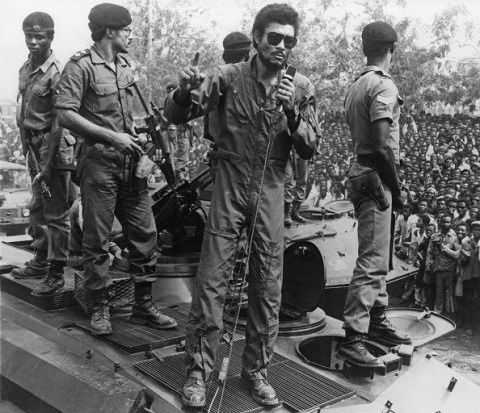
Political activities were occurring at the time while a civilian government was waiting to be elected. The Armed Forces Revolutionary Council (AFRC), led by J.J. Rawlings, acknowledged the elections and pledged to transfer control to the victor. However, former SMC members were put to death before the transfer of power in September 1979. Even if the majority of Ghanaians supported the revolution, bloodshed is not something that Ghanaians enjoy since it is not how they like to conduct themselves.
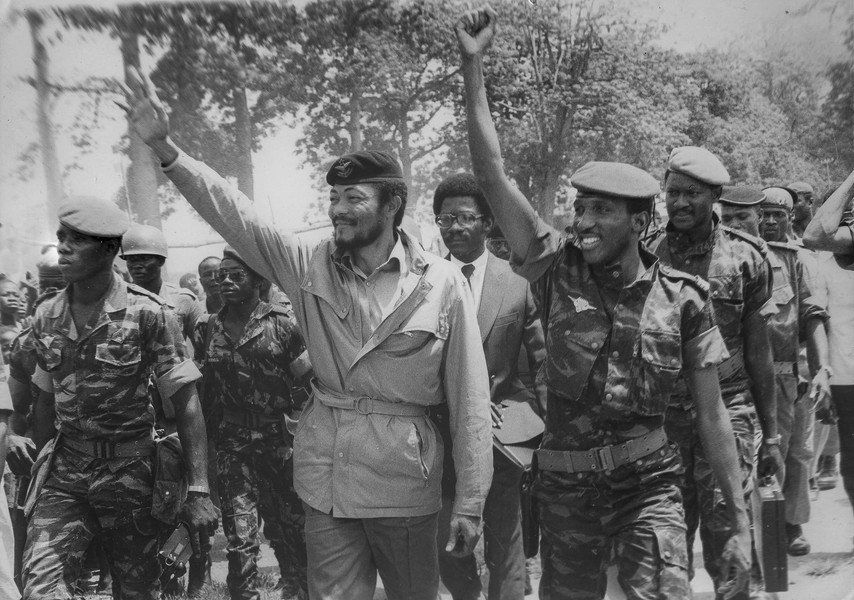
Foreign media expressed strong opinions against the military coup in Ghana and the killings, with the majority of them demanding a quick transfer and threatening economic consequences. For instance, Nigeria declared that it would no longer send oil to Ghana. When hostile statements, reports from foreign media, and threats were made, there were responses from the populace at home.
The articulate and dynamic student body, the National Union of Ghana Students, was among the many progressive organizations that condemned the foreign remarks on the execution with a series of statements quoted below:
“We condemn in the strongest terms the threats allegedly issued by the Obasanjo Government in Nigeria to cut off supplies to Ghana. The clean-up exercise here has set a new precedent in African politics… The pleas of the Paris-teleguided governments in Ivory Coast, Togo and Upper Volta also show the depth of their hypocrisy and how unfair they have been to the suffering people of Ghana. When our timber, cocoa, diamond, rice, maize and essential imported commodities were being smuggled to these countries by the few local enemies of the people of Ghana, these “good neighbours” of ours actively collaborated with them. And now that the inexorable arm of the revolution wants to exact justice on these culprits, they dare plead for mercy for them…”
Three days later, Flt. Lt Rawlings went on radio and television to say that there would be no more executions. Instead “we shall resort to such forms of punishment as confiscation of illegally acquired wealth and imprisonment terms of productive labour.
https://www.boomplay.com/share/music/68239131?srModel=COPYLINK&srList=IOS
From Europe, the Overseas Branch of the Nation Union of Ghana Students supported the executions as “justified” and suggested that the cleaning operation should not be limited only to corrupt personalities of the Armed Forces of Ghana, but “it must also be extended to their civilian counterparts engaged in trade, commerce, industry, administration and management.”
The students also suggested that both retired and new party leaders should be subjected to probing.
It was also the view of the students that the AFRC should carry on with its intention of “sweeping away the filth of corruption and never pay heed to the protests of certain foreign states, powers (like the U.S.A., Britain and West Germany) and international organizations against the executions”.
Then, like the feeling of progressives at home, the point was made that “such institutions and countries never protest when Ghanaian masses suffer and die of squalor, disease, hunger and abject poverty.”
The Ghana Muslims Representative Council also sent a message of support to the AFRC for the Council’s ability “in dispensing justice promptly and inflicting the just and due penalty without fear or favour”. The Council welcomed the decision of the AFRC to dispatch those found guilty from now on to Penal Farms and confiscate their properties instead of imposing the death penalty which should be “reserved for those who commit murder”.
Even while the AFRC was committed to handing over control to those chosen on June 18th, there was still a lot of doubt among the elite camp. The AFRC’s bravery in handling social outcasts was a remarkable achievement for the working class. They were even more pleased to see that market prices had dropped and cocoa producer prices had increased. Jerry Rawlings would have easily won the elections if he had run at this time. However, the procedure for turning over had already begun.
An elite group, the Society for National Welfare, reacted even more sharply to international concerns. They issued a press release which said:
“The Society for National Welfare wishes to express concern about some aspects of the international reactions to current events in Ghana, in particular the use or the threat to use economic and other sanctions to influence internal policies and decisions.
“While we do not deny any nation, individual or organization the freedom to make observations on and react to events in other countries, we note with very grave concern the extremely hostile reactions to recent events in Ghana from our traditional friends in Africa, in the Commonwealth and some other parts of the world.
“Some of these reactions seem to be aimed at deflecting the Armed Forces Revolutionary Council (AFRC) from its stated objective, namely that of cleaning up the country of those vices which have resulted in the almost impossible living conditions to which the majority of Ghanaians have been subjected within the last few years.
“What is even more disappointing in these reactions is the almost total lack of appreciation of the circumstances that led to the action of June 4”. And yet most of the countries have been aware of the depths to which our country had sunk as a result of the rapacity, corruption and extreme insensitivity of those who had taken up arms ostensibly to redeem Ghanaians from the intolerable conditions under which they were living. Ghana became the laughingstock of the world, and we were even openly ridiculed in a television quiz programme of a sister African country. As a result of these intolerable conditions, large numbers of our professionals, graduate teachers, mechanics and other able-bodied young people, out of sheer frustration, left to seek their fortunes in neighbouring countries.
https://www.boomplay.com/share/music/68239131?srModel=COPYLINK&srList=IOS
“Deprivation became almost total; basic commodities could not be obtained, except at astronomical prices and after hours of waiting in the queue. Hospitals were without drugs and spare parts were unobtainable. People had to travel to neighbouring countries to buy basic things like soap, toilet paper, sugar, toothpaste, cooking oil, basic medicines, spare parts, tyres, etc. This situation inevitably gave rise to a flourishing black market which further eroded the value of our currency, the cedi. The cost of living was increasing by the day, and when the basic minimum wage was 4.00 a day, a member of the last Government lamented openly that one needed $15.00 to get a single meal.
“All these were happening at a time when cocoa, our major foreign exchange earner, and other exports like gold and timber were fetching very high prices on the world market. This was the major question the students and professionals were asking from May 1977 when the needles suffering forced them to strike, beginning a series of industrial actions in reaction to the prevailing intolerable circumstances.
“In this wide sea of poverty, hardships and deprivation, there arose at the same time islands of flamboyant affluence and conspicuous consumption in the state. Mansions were being put up by people in government and by the new crop of spurious businessmen who had been issued with import licences. The gap between those who had and those who had not grew wider, and since most people could not survive on their meagre wages, they resorted to all manner of dubious stratagems to survive.
“The Union/National Government idea which was put up as a sort of diversion did not make people forget the stark realities of life. Reports in local and foreign papers during the period spoke of the deteriorating conditions of life in the country. Morale was consequently low, productivity decreased and the downward slide continued. With Acheampong’s removal in July 1978, an opportunity was gained to correct the situation, but because of their complicity in the shameless plunder of the national coffers, his successors sat by helplessly and offered a political palliative to the people by rescinding the decision on Union Government.
“It had become clear that the cause of our problems was flagrant corruption and blatant abuse of office, and that something had to be done about it if we were to lay a healthy foundation for national development. This is the justification for the action of June 4th.
“We are aware of the concern that has been expressed in international circles about the methods being used and the severity of punishment meted out. We do concede that the procedures adopted so far have not met the expected standards. But our friends are certainly not unaware that various bodies in Ghana, including the Society for National Welfare, have rightly expressed concern about this. In one of our early statements, we called for the scrupulous observance of the principles of natural justice and fundamental human rights in the trials.
“In a subsequent statement issued on 28/6/79, we observed ‘we note with regret that there has been no information given to the public about the (membership) of this court and how it operates, but the rapidity with which cases have been disposed of leaves room for very serious misgivings. We, however, recall with gratification that the AFRC have, to some degree, positively reacted to this concern.
“In light of the above, we think it will be more helpful if those now contemplating the use of economic and other sanctions against Ghana would take note of the following: the primary purpose of the actions of the Government is to help eradicate the sort of corruption, abuse of office and exploitation which have been rampant in Ghana, and indeed in several developing countries, and which constitute the most severe obstacle inequitable and sustained socio-economic development.
“In this atmosphere of corruption and abuse of office, domestic resources are utilized well below optimum, foreign technical and other aid is wasted or diverted to private accounts, and social stability is jeopardized.
“It is needless to stress that under such conditions, no nation can be assured of a stable, peaceful and prosperous future. The housecleaning exercise as the Government has stated is therefore partly meant to ensure that aid and credit provided to the country are used for the purpose for which they are granted, that is, for the benefit and development of the whole population.
“We are all naturally concerned about civic rights, but the present Ghanaian situation must also be judged in its worldwide context, especially in the light of current social events in several other developing countries. The root causes of these upheavals can be found in the absence of probity and accountability in public life in these countries. We, therefore, expect that our detractors, as well as friends, would, through their actions and otherwise, address themselves a little more to the question of probity in public life, and help us to achieve this goal.
“Our creditors and other friends who now seem to be overreacting and cutting credit and withdrawing their goodwill may soon discover that they are only contributing to chaos and total collapse of law and order in the country. Neither they nor Ghana could benefit from this eventually.
“We, therefore, hope that our traditional suppliers and creditors will maintain existing commercial and economic links.” ISSUED BY THE COUNCIL, SOCIETY FOR NATIONAL WELFARE.
Additionally, it was revealed that J. J. Rawlings received a letter from a group of University of Ghana students on July 7, 1979. In part, it stated:
“We are grateful to you and all members of the AFRC. We congratulate you and give you our total and unconditional moral, and spiritual support for the achievement and the triumphant objectives of the revolution…
“You have entered the political scene just at the time when the country needed a radical and courageous leader of your calibre. We salute this historical event and hope you will transform this country into a new, rich strong and prosperous society. We note with satisfaction that all your revolutionary actions are aimed at alleviating the suffering of the working class from the exploitation by the greedy and unpatriotic Ghanaians…
“You are the Fidel Castro of Ghana. The fire of revolution which you have already sparked shall continue to burn after you and for future generations…
“The revolution must continue, in all directions — political, economic, social, cultural, agricultural, scientific and technical, without interruption…So any attempt to hand over political power to the bourgeoisie will simply mean the failure of our revolution and the betrayal of the working class…”
Although these opinions were prevalent among students, the AFRC appeared determined to implement its plan and finally ceded power to Dr Hilla Limann and the People’s National Party (PNP), which won the elections.
Despite the fact that June 4th is now a famous event in Ghanaian history, others claim that it had unfavourable effects on the country.
Just like all coup d’états in Africa and beyond, it is occasioned by legitimate or illegitimate concerns. The situation in Niger is not different from the usual poor governance, that coup plotters use to justify their acts. Colonel Amadou Abdourahmane, the group’s spokesperson, told the Nigeriens that the military and security forces had overthrown the administration because of the deteriorating security situation and bad governance.
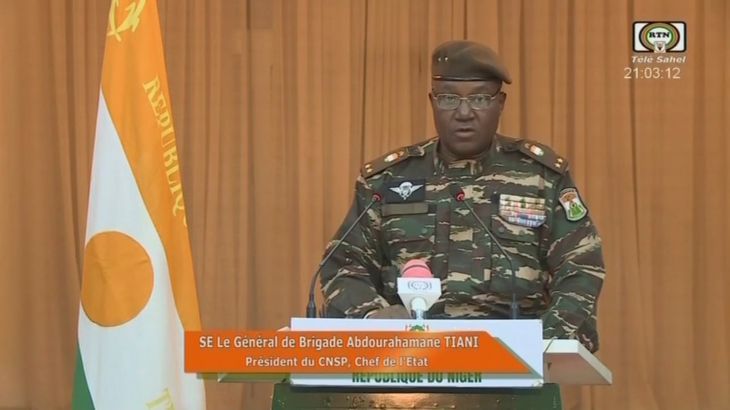
However, it is argued that the coup leader Abdourahmane Tchiani was at risk of losing his job as the commander of the Presidential Guard, where he had previously guarded the government against multiple mutiny attempts while serving under both former President Mahamadou Issoufou and his successor Mohamed Bazoum. If this argument is to be believed, the coup may have been influenced by the dissatisfaction of the leader and other senior military officers considering their prompt alignment. Even though thousands of Nigeriens have shown their open support of the coup, it would be incorrect to claim that their open support reflects the true justifications offered by the coup plotters. This is because every government would face opposition from certain factions. Others argued that the coup may have been influenced by the recent statement made by the deposed President Bazoum that terrorists were “stronger and more battle-hardened” than the local troops. This comment may have been interpreted as disheartening, striking a nerve within the military, and raising tensions in the lead-up to the overthrow.
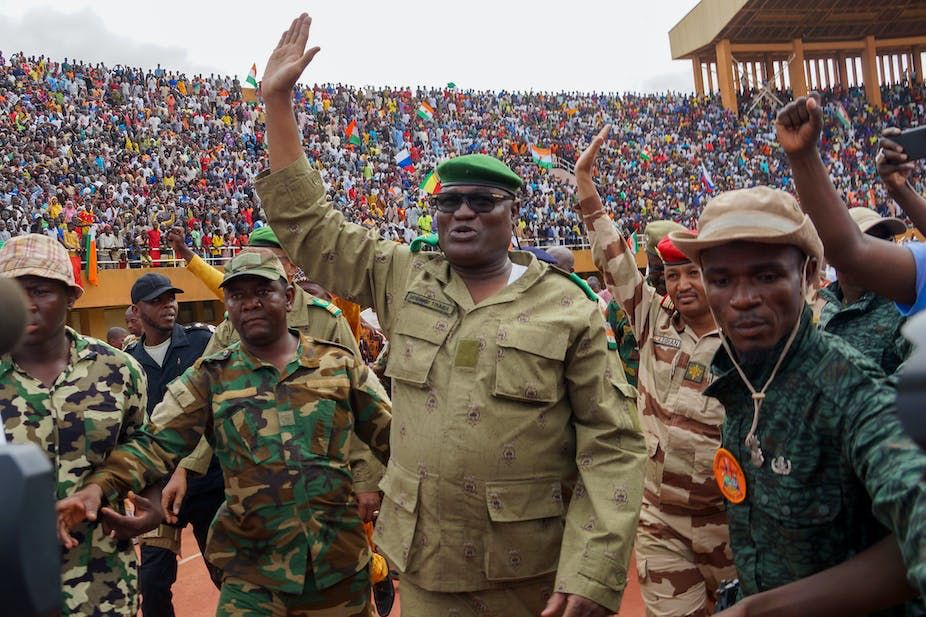
Following the coup, The Economic Community of West African States (ECOWAS) gave the junta a one-week deadline to restore ousted President Bazoum or risk military action, a decision that many analysts criticised. ECOWAS since the expiration of the ultimatum has resorted to dialogue with the coup leaders while arranging to employ military should the negotiation fail. In case ECOWAS decides to use its force, the military authorities in Niger have also expressed their preparedness. The decision to use military action in Niger to restore constitutional rule was approved by all member nations at the most recent ECOWAS Defence Chiefs conference in Ghana, despite opposition from civil society organisations in the ECOWAS member countries. Just after the ECOWAS summit in Accra, the coup leaders announced a three-year transitional plan, but the regional bloc appears determined to carry out its plan by military intervention if the coup leaders do not quickly restore the deposed head of state.
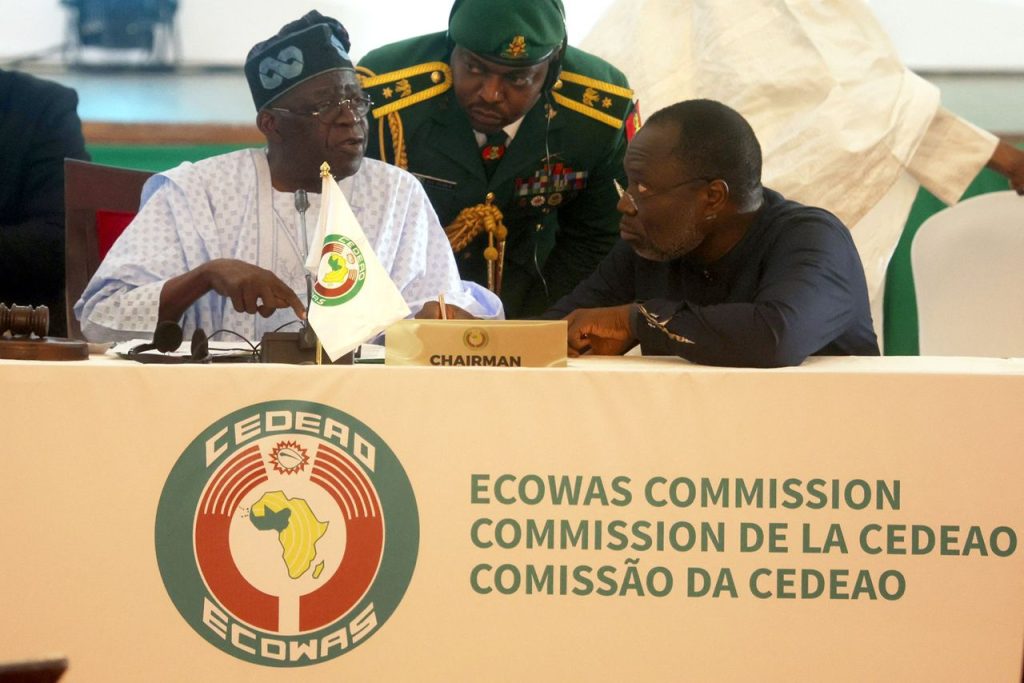
Saddened by the poor leadership, underdevelopment and hardship some African countries are experiencing, George Weah, president of Liberia, noted, “As long as ECOWAS tolerates institutional coups that allow lifetime presidencies, there will always be military coups, and we cannot condemn military coups when we do not condemn those who carry out institutional coups”.
Disgusted over the coup in Niger Republic, the Liberian president further insisted that African leaders must lead right to end coups.
Surprisingly, there have been reports suggesting an alliance of Russia and the Juntas in the West African sub-region. This association may not be in the interest of Pan-Africanism. If the fight is for the liberation of Africa from the shackles of neocolonialism, then the Juntas might have to rethink their association. Nevertheless, the association with Russia is necessitated by the meddlesomeness of ECOWAS, who appear to be championing the interest of the West.
It is argued that ECOWAS’s pry is not to protect the people of Niger but for two reasons, namely:
- Fear of a coup cascading to other West African countries, which would take off their parasitic regimes. It is so because, apart from French interference in the Francophone countries, the economic situation remains the same across West Africa.
- If they do not champion the interests of some Western countries, their regimes would be toppled by these Western super houses, to give way to a new regime that would comply with neocolonialism.
In either case, the protection of individual regimes of ECOWAS leaders overrides any other interests. The overarching effect of these occurrences is the dwindling hope for achieving Pan-Africanism, which is not a result of the division among leaders of the West Africa sub-region. But the repercussions of both factions associating with some Western powers would certainly result in dire consequences.
Although Russia does not have colonies in Africa and does not show interest in neocolonialism, the ongoing economic war requires the super houses to have affiliates in Africa. Russia’s support for the Juntas may not only be to liberate them from the shackles of neocolonialism but may come with ulterior motives.
There is no free lunch anywhere. Africa must unite to build the continent.
Author’s Profile: Abdul-Salam Shaibu is an Investigator and Cybersecurity Practitioner. [PhD (Candidate), P-G Law (UK), MSc, BSc, Dip.] Ghana, UK. The author’s research interests are in IT, Cybersecurity, Law, Risk Management, Security, and Criminal Psychology.
Please address all correspondence to: Abdul-Salam Shaibu by Phone: at (+233) 026 530 8783 and by email at shaibubaba80@gmail.com
Reference
African leaders must lead right to end coups
The Trial of JJ Rawlings – 2nd edition: Kojo Yankah 2018


